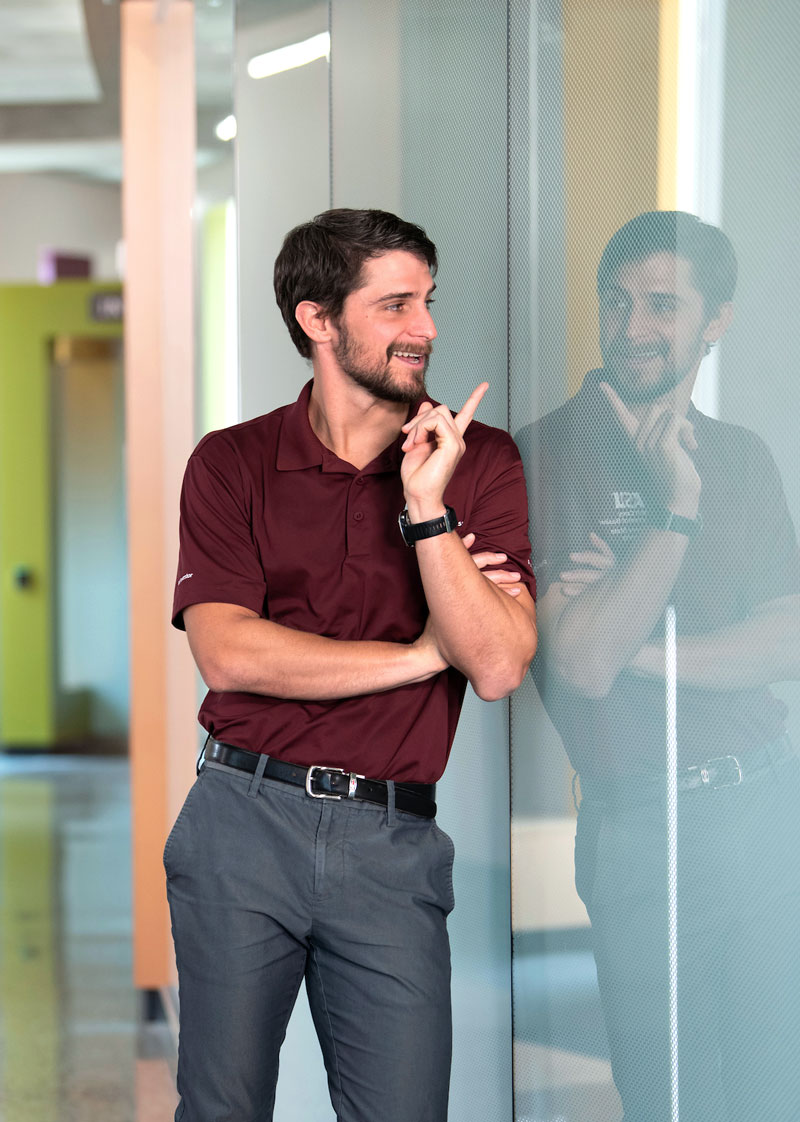
>> Executive Connections Stories
Walking alongside professionals: An interview with alum Robert Maloney

Robert Maloney
The Full-time MBA program at the W. P. Carey School of Business offers a unique opportunity for students to have extended face-to-face time with experienced business executives and receive priceless advice.
Alumnus Robert Maloney (Full-time MBA ’22) says that his experience with Executive Connections, and the continued relationship with his mentor, have helped him take the next steps in his career. Today, Maloney is a Strategic Partnerships Consultant at Bragiel Brothers, an early stage venture fund.
“My mentor helped me think about not just the options that were available, but where I could find the best use of my skills and my interests,” he says.
We asked Maloney about how the mentorship program helped him become a better business leader, the valuable lessons he learned at W. P. Carey, and his advice to those considering an MBA from ASU.
Q&A with Rob Maloney
What is it that makes Executive Connections so unique and impactful? Mentors, alumni, and current students know best. This conversation has been edited and condensed.
Question: What made you decide to pursue an MBA, and what brought you to ASU and W. P. Carey?
Answer: A big reason I decided to pursue my MBA at ASU was because the world was pushing me in this direction. I was living and working in China when COVID started, and in the midst of that, I had to figure out what was next for me. I'd come home when the world was shut down in that isolated time period for a lot of people. While I was searching for the next opportunity, I received a scholarship to get my MBA at ASU. It seemed like an inviting and welcoming chance to take a new turn in my career.
Q: What’s something you learned at W. P. Carey that surprised you or changed your perspective?
A: Something I learned at W. P. Carey that really changed my perspective about things was the importance of everyone bringing their authentic perspective to the table. Whether you have a background in mathematics like myself, or whether you were a teacher or an artist or working with nonprofits, everyone has a unique perspective.
If we can bring our curiosity and our strengths to the table, we don't have to have everything figured out. We don't have to have all the answers. Together we can ask better questions. We can learn from each other's experiences, and we can arrive at better questions that lead us to better answers.
Q: How did the Executive Connections program make a difference in your MBA experience and help you grow as a leader?
A: Executive Connections, for me specifically, made a huge difference because I'm someone who believes passionately that we have so much more potential inside of us than we ever get a chance to fully actualize. Having the chance to work with multiple different mentors, and closely with my own mentor Terri Tierney Clark, gave me the opportunity to see more in myself and my capabilities that I didn't realize was there before.
Terri helped me slow down and be a lot more considerate about how my actions affect everybody that I work with. It's not enough for just myself to be able to keep up with the pace, but I need to be focused as a leader, as a better teammate, and as a better friend. How can I include other people, and how can I help everyone around me reach the next level together?
Instead of just thinking about how my team or I need to be successful in order to get results, how can we all find mutually beneficial solutions? She really helped me slow down and think about the ways that I can be more inclusive as a teammate, leader, and friend.
Q: Why is it so important for MBA students to learn to lead?
A: It’s not something that can be taught. Leadership is something that must be learned, but you can only learn it when you're ready to learn it and when you have the opportunity to actually experience it and reflect on the experience. Then I think we're ready to learn the lessons that we're able to be taught from leadership. But it's not something that can be taught from a book or in a standard way. You really need the opportunity to lead projects, work with people, make mistakes — which is a huge one — and be able to learn from those mistakes by reflecting with the right kind of leaders and mentors who can help you along in your journey.
Q: What advice would you give someone who’s considering the MBA program at W. P. Carey?
A: I would say, with the grace of the mentor that you have, don't think that you have to stop at just one. Build relationships with all of the mentors, or as many as you have the opportunity to, because the program gives you access to so many incredible leaders and opportunities to learn from them.
It's really on you; they have so many students they’re working with. If you go to them, they're so willing to give their time, but it's on you to actually go to them and show them that you’re interested.
The Executive Connections mentors are more than willing to give their time, energy, and resources, and they want to see you succeed. So be willing to make the connection and build that relationship so that you can learn together.